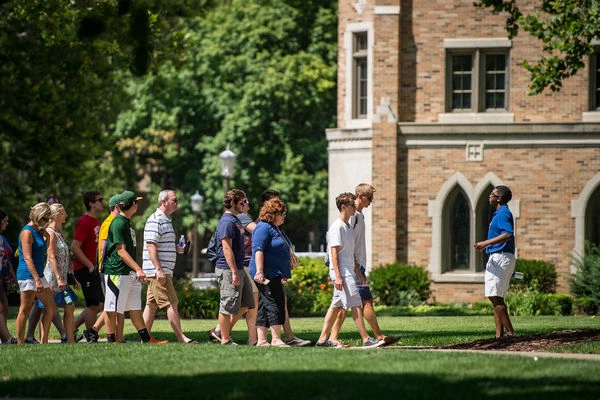College acceptance prep is the structured process students follow to get ready for applications – from building strong transcripts and essays to meeting deadlines and admissions requirements. At CollegeCommit, we guide high school students through every stage of this journey, ensuring nothing is overlooked.
We offer elite college admissions consulting, expert essay coaching, and top-tier tutoring and test prep. Our advisors provide students with academic support, essay guidance, and strategic direction for the admissions process.
With 20+ years of experience, we mentor students aiming for Ivy League and Top 20 universities through proven preparation and personalized strategies.
Key Takeaways
- Start early with grade-specific goals to build strong transcripts, activities, and test readiness.
- Admissions decisions weigh academics, extracurricular leadership, essays, and recommendations.
- Use the Common App, follow a checklist, and meet application deadlines.
- Plan ahead for FAFSA, scholarships, and financial documents.
- Expert guidance helps refine strategy and avoid common mistakes.
- College Admission Prep provides families with structure, timelines, and direction to make the application process more manageable.
Table of Contents
ToggleCollege Admissions Explained
Overview of the Admissions Process
The admissions process follows a series of key steps that every student must complete. It begins with choosing courses and maintaining strong high school transcripts. Next comes preparing for standardized tests, unless the school is test-optional.
Students then focus on building extracurricular activities, drafting college essays, and requesting letters of recommendation. Finally, all materials are submitted through the Common App or other application platforms by the required deadlines.
Admissions offices review these pieces together to evaluate academic performance, personal qualities, and leadership. Applying to colleges is more than paperwork – it is about showing readiness through consistent choices. While school counselors can help, many families seek additional guidance to stay organized and avoid missing critical steps.
College Admissions Requirements
Most schools ask for transcripts, letters of recommendation, test results when not test-optional, and essays. Requirements change by school, so it is important to check each admissions office directly.
Main requirements include:
- High school transcripts with steady performance.
- A personal statement or essays showing goals and interests.
- Extracurricular activities that show leadership.
- Strong letters of recommendation from teachers or mentors.
General Tips on How to Prepare
The best results come from starting early. Students should pick challenging courses, join meaningful extracurricular activities, and draft essays months before deadlines.
Families should also check if the schools use the Common App. This platform enables students to apply to multiple colleges simultaneously. Knowing deadlines for Early Action, Early Decision, Restrictive Early Action, and Regular Decision is key to staying on track.
Preparing Early for College Admission
Year-by-Year Roadmap for Admissions Prep
Each year of high school has important steps for preparing for college admission. Families can use this roadmap to guide their students’ progress.
9th Grade (Freshman Year)
- Build strong study habits and keep grades steady.
- Explore extracurricular activities to find interests.
- Meet with school counselors to understand graduation requirements.
10th Grade (Sophomore Year)
- Continue with challenging courses and consistent academic performance.
- Take on leadership roles in clubs or community service.
- Begin light test prep for the PSAT and review admissions process basics.
11th Grade (Junior Year)
- Register for the SAT or ACT and take practice tests.
- Draft the personal statement and plan college essays.
- Visit colleges, attend information sessions, and refine the college list.
12th Grade (Senior Year)
- Finalize essays and request letters of recommendation.
- Submit applications through the Common App or other required platforms.
- Review financial aid forms and prepare for admissions decisions.
College Visits and Exploration
College visits help students understand which type of environment best suits them. In-person tours, virtual sessions, and fairs provide valuable insights into programs and campus life. These experiences also help students create stronger essays and personal statements.
Junior Year Testing and Planning
Junior year is one of the most active parts of the application process for college. Students should prepare for the SAT or ACT unless all target schools are fully test-optional.
This is also the right time to organize extracurricular activities, take on leadership roles, and polish academic performance. Families can use this year to strengthen the student’s narrative and prepare for Early Action or Early Decision deadlines.
Senior Year Deadlines and Decisions
Senior year is when the application process for college becomes final. Students must ensure every part of the college application is complete and submitted on time.
Key tasks include:
-
- Sending high school transcripts through school counselors.
-
- Completing the Common App or other institutional applications.
-
- Confirming letters of recommendation.
-
- Reviewing admissions requirements for each school and meeting all deadlines.
At CollegeCommit, we remind families that the Common App personal statement has a 650-word limit. We guide students to make each word count while keeping their essay authentic.
Navigating the College Application Process
Real Student Scenarios for Better Engagement
Examples show how students can stand out. A sophomore who joins debate and takes honors classes is developing academic strength and leadership skills. These choices demonstrate initiative.
A junior who balances athletics, service, and test prep shows growth and planning. Their activities support a strong personal statement. Small steps like these create a consistent story for admissions offices.
Academic Requirements and Course Rigor
Admissions offices want transcripts that show strong performance and challenging classes. AP, IB, or honors courses can help, but students should choose carefully. Balance matters more than overloading with hard classes.
Extracurriculars and Leadership Roles
Extracurricular activities are important. Colleges seek steady involvement and leadership. It is better to focus on one or two main areas than to spread too thin.
Essays, Personal Statements, and the Common App
The personal statement is a chance for students to share their story. Essays should be personal, clear, and edited carefully.
Many schools use the Common App, which allows students to submit one essay and answer additional questions tailored to different colleges.
At CollegeCommit, we don’t just advise – we engineer your child’s admissions edge by mentoring them through brainstorming, reviewing drafts, and polishing ideas.
Letters of Recommendation
Strong recommendation letters matter. They show how a teacher or mentor views a student’s work and character.
Students should ask people who know them well and give them enough time. A good letter adds credibility to the application.

Is College Prep Better Than Honors?
Families often ask if college prep classes are as strong as honors. College prep is standard, but honors or advanced courses carry more weight.
Admissions offices look for students who challenged themselves at the right level. Taking some advanced courses can improve an application.
College Acceptance Prep Checklist
College Application Process Checklist
Students can use a checklist to make sure every step is complete:
- Request high school transcripts.
- Complete the Common App or other application process forms.
- Write and edit the personal statement and college essays.
- Collect letters of recommendation.
- Confirm test scores if not test-optional.
- Submit all applications by the stated deadlines.
What to Prepare Before Going to College
Preparing for college includes more than applications. Students should organize financial documents, review housing details, and confirm health records. Taking care of these items early makes the transition to college or university smoother.
Planning for orientation and the first term helps students adjust with less stress. Families can also prepare by setting up a system to track admissions decisions and enrollment steps.
Planning for Financial Aid and Scholarships
Financial aid is a key part of the application process for college. Families should complete the FAFSA and check deadlines for state or school-based aid. Many colleges and universities also provide merit scholarships tied to academic performance or extracurricular activities.
To prepare, families should start collecting financial documents during junior year. Researching private scholarships early is also helpful, since requirements and deadlines vary. Planning ahead ensures students are ready to respond quickly after acceptance.
Strengthening Your Application
Building a Cohesive Narrative
Strong applications tell a clear story. Students should connect their grades, activities, and essays to show consistent goals.
This helps admissions offices see who the student is and what they hope to achieve.
Are College Prep Programs Worth It?
College prep programs can provide structure. They may help with essays, test prep, or activity planning.
Families should decide if extra support will improve their student’s preparation.
Avoiding Common Mistakes in the Admissions Process
Common mistakes include missing deadlines, writing weak essays, and ignoring supplemental forms. Students should double-check each step.
Staying organized avoids delays and prevents missed opportunities.
Final Steps Before Enrollment
Preparing for College Interviews
Some schools offer interviews as part of admissions. Students should prepare by reviewing their applications and practicing answers.
Interviews are also a chance for students to ask questions about the school.
How Long Is a College Acceptance Good For?
An acceptance usually lasts until the start of the listed term. If students do not confirm by the deadline, the offer may be withdrawn. Families should track deposit dates and confirm enrollment on time.
How Much Does a College Admissions Consultant Cost?
At CollegeCommit, we offer a free 30-minute consultation to review your family’s needs. This includes a readiness review and a snapshot of your student’s admissions plan. Our yearly packages range from $5,000 to $30,000 based on grade and level of support. Families can choose the package that fits their goals.
Resources Like the College Board
The College Board provides tools for test registration, research, and scholarships. Students should rely on official sources for accurate information.
When to Seek Expert Guidance
Some families look for extra support when school counselors cannot give enough direction. Advisors help with timelines, essays, and staying on track.
At CollegeCommit, our team includes former admissions officers, Ivy League graduates, and senior experts with 20+ years of experience. We start working with students as early as 8th grade.
We don’t just advise – we engineer your admissions edge.
Ready to Take the Next Step?
This ultimate guide to college applications demonstrates that success stems from planning, organization, and informed choices. From transcripts to extracurricular activities and the Common App, every step matters. Students who start early and stay organized are better prepared.
Ready to transform uncertainty into opportunity? Join our upcoming cohort at CollegeCommit: Where Preparation Becomes Placement.
Consider scheduling your free private call today.



